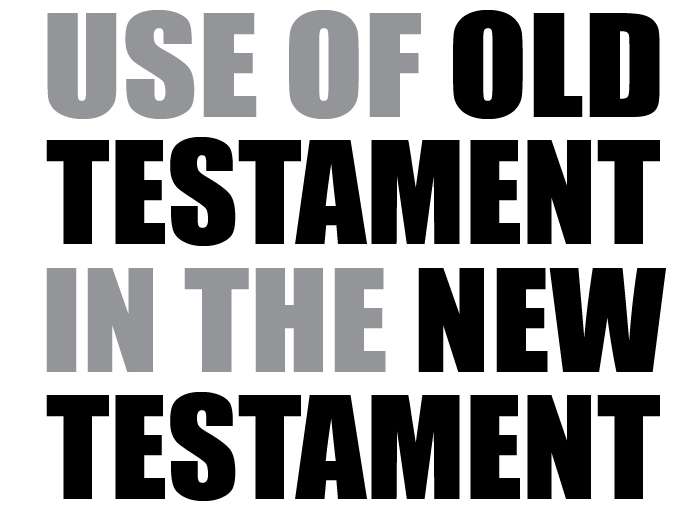

Promise of Messiah in the Old Testament
Dr. Geevarughese Mathew
Promise of the Messiah is one of the central themes in the Old Testament. The New Testament affirmation that Jesus Christ is the fulfillment of the messianic prophecies in the Old Testament is so deep rooted in our Christian faith. The word Messiah in Hebrew means “anointed”. In Greek it is translated as “Christos” from which the title Christ derives. In Old Testament times the anointed were called kings, prophets and High Priests. This was because holy oil was poured upon their heads as a symbol of grace during their ordination to these positions. The faith affirmation that Jesus Christ is the Messiah and the savior of the world is understood as the fulfillment of promises we find in the Old Testament.
The promise of the Messiah to redeem humanity from sin is seen by many even in the account of the creation and fall in the Book of Genesis. The fallen nature of humanity is vividly pictured in Genesis (3:1-24). The man and the woman violated God’s instruction not to eat fruit from the tree of the knowledge of good and evil. The serpent is a personification of temptation. The serpent made the suggestion but the man and the woman took the decision. The prohibition (Gen.2:17) is violated. The permission (2:16) is perverted. The vocation (2:15) is neglected. The order of transgression and the order of punishment are the same. The serpent is not interrogated but he was punished for his sinful act of temptation. God puts enmity between the offspring of woman and the serpent. The clause, “he will strike your head and you will strike his heel” is considered by the early church as protoevangelium which is the first proclamation of the gospel of redemption. God promises that the seed of the woman shall crush the head of the serpent. That means the seed of the woman will obtain victory over temptation and evil. This is taken as the first recorded prophecy of redemption to be brought by Christ. But modern scholars have questioned whether the Jahwist (J) had that kind of a prophecy in mind. It is also argued that the passage is a part of curse and a condemnation, not a prognosis that is an advance indication of future blessings (Oswald Loretz). But within the overall context of Genesis, `the seed of the woman’ refers to those who are righteous, whereas `the seed of the serpent’ denotes those who are wicked. This theme is further expanded in other parts of the Old Testament.
The same theme is emphasized in the life of Abraham whom God called for the blessing of all the nations (Gen.12:1-3). Here we find the principle of election of an individual for the blessing of the humanity. The whole story of Genesis describes the response made to God’s action by successive individuals. The three-fold blessing of land, prosperity and posterity is a recurring theme in life of the patriarchs Abraham, Isaac and Jacob. God promises the land to the `seed’ of Abraham (12:7). God’s promise to bless the nations of the earth is closely linked to Abraham and his `seed’ (Gen.22:18; 26:4). It is also important to notice that an allusion to the royal line is implied in the story of Abraham. The divine promise made to Abraham that `kings will come from you’ (Gen.17:6) and the statement concerning Sarah that `kings of peoples will come from her’ (Gen.17:16) supports the possibility of a royal line for the blessing of the nations. The final chapters of the book of Genesis describe the life of Joseph and his elevation to the ruler of Egypt. The subject of kingship is prominent in the Joseph narrative. The idea that Joseph from a humble beginning became a channel of blessing for others may be connected to that idea of kingship. Even though Joseph is the main character in the narrative, Judah also plays an important role (Gen.43:8-9; 44:16; 44:18-34; 46:28). The prominence of Judah is further explained in the blessing which he receives from his father Jacob (Gen. 49:8-12). Thus it is envisaged that the royal line is linked to Judah through whom the blessings from God will be imparted upon others.
The book of Ruth is also contributes much to the expectation of the Messiah from the royal line of Judah. The significance of `Bethlehem in Judah is stated in the beginning of the story of Ruth. When a son was born to Ruth and Boaz the women of the neighborhood gave him a name saying, “A son has been born to Naomi.” They named him Obed; he became the Father of Jesse, the father of David” (Ruth4:17). Even though the book of Ruth does not mention about the Davidic dynasty, the expectation of a Messiah in the line of David is clearly anticipated.
The establishment of the Davidic dynasty is an important theme in the book of Samuel (2 Sam.7:10-13). The covenant implies that the dynasty of David will continue forever This covenant, often called the royal covenant or Davidic covenant, later ensured the social stability of the Southern Kingdom of Judah. God promised three things to David through this covenant. First, God will make David’s name famous (v.9b). Second, God will establish peace and freedom from oppression (vs.10-11a). Thirdly God will establish a house for David (vs.11b-12). It is a fact that the Davidic kingdom was destroyed in 586 B.C because of Babylonian captivity. But God’s promise of an enduring line continued in the promise of the coming Messiah, who would be the son of David, the son of Jesse. Later this give rise to the prophetic hope that a Messiah would arise from the house of David to usher the kingdom of God (Is.9, 11).
The prophecy of Isaiah of Jerusalem during the reign of Ahaz in the context of Syro-Ephramite war (B.C 734-732) regarding the sign of Immanuei is another development of messianic expectation (Is.7:10-17). In the year 734 an anti-Assyrian coalition, composed of Syria and Israel, invaded Judah in an attempt to force Ahaz, king of Judah to join them. Isaiah confronted Ahaz while the king was inspecting his water supply in anticipation of the coming siege. Isaiah told Ahaz to trust in Yahweh, and not to worry about Syro-Israelite allegiance. Isaiah encouraged to trust in Yahweh, the One who controls the human affairs. Isaiah tried to assure Ahaz that Yahweh would confirm his prediction with a sign. But when Ahaz refused the offer of a sign, Isaiah announced that Yahweh would give him a sign. The sign would be in the form of a child, whose name would be “Immanuel” which means `God with us’. The sign is that the virgin will conceive and bear a son. There has been much debate about the exact meaning of the Hebrew word translated “virgin”, because it can also mean “young woman” of marriageable age. It is also important to note that the word `the’ used before `virgin’ probably indicates that woman was someone whom Isaiah and Ahaz know. It may be possible that the women might be a member of the royal family whom they already knew. It has been suggested that the child was Hezekah, Ahaz’s son and successor. The message of the prophet was in a specific political and social context but it has so much relevance for the future. Therefore the New Testament writers rightly make use of it to explain Jesus as the Messiah (Mat. 1:23).
The Messianic King who sits upon the throne of David in Is.9:2-7 seems to be a reference to the sign child. Isaiah is saying that those living in darkness have seen a great light. This light has been interpreted as the great light came into the world who is Jesus Christ. The child of hope will be on the throne with divine qualities. He is described as `Wonderful Counselor’,` Mighty God’, `Everlasting Father’, and `Prince of Peace’ (Is.9:6). All these descriptions are ascribed to the future Messiah. The ruler does not need any external support, He is a mighty warrior God, is relationship with His people is everlasting and His relationship is fatherly, He is the Prince of Peace who always look for the well being of His people. Isaiah further presents the child as the one who rules the remnant of the people with “justice and righteousness (Is.11:1-9). Here the use of the expression, `stump of Jesse’ is carefully used to denote another messianic king from the Branch of Jesse other than David. He will be a perfect king endowed by the `spirit of God’. The spirit will enable him with three sets of characteristics that are vital for administering justice and righteousness. They are wisdom and understanding, counsel and might and knowledge and fear of the LORD.
Perhaps the most important promise of Messiah in the Old Testament is seen in Deutero-Isaiah, who prophesied during the Babylonian Exile. The prophecy is a message of comfort, consolation and hope. These prophecies contained in chs.40-55. The Servant Songs in Dt. Isaiah is understood as a vivid picture of the nature of the Messiah who will be a light to the nations (42:1-4; 49:1-6; 50:4-9; 52:13-53:12). In the first song, Yahweh announces that the servant will usher a new era of justice to the nations. In the second song, the servant is clearly identified as Israel (49:3). The third song describes the servant as the one who endured hardships because he knew that Yahweh would vindicate him at the end. The fourth song is actually very similar to the life and ministry of Jesus as the servant of Yahweh. This song describes a person who was sick and who suffered vicariously for the wellbeing of others. The servant is compared to a sacrificial lamb whose slaughter atoned for the sins of many. The identity of the servant is difficult to find out. It may be the whole people of Israel or it may an individual who acts as the servant of others. It is very important to notice that Jesus was much inspired by the messianic description of the servant in Dt. Isaiah. He identified himself as the suffering servant who came to save the sinful humanity. Jesus read from the Book of Isaiah in the Synagogue making it very clear that He is the Messiah who came with the Spirit of the Lord to proclaim the good news to the poor and to proclaim the Year of Jubilee. The promise of the Messiah as the seed in the royal line of David is being fulfilled in Jesus who humbled Himself as the Servant who brought salvation to humanity through His death and resurrection.




